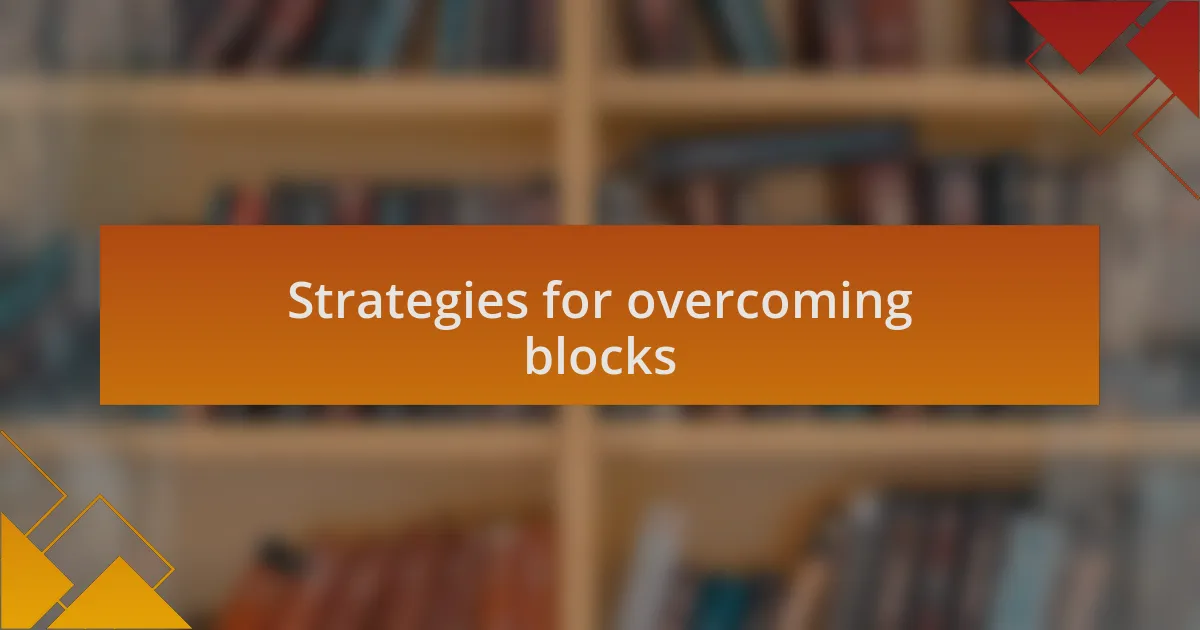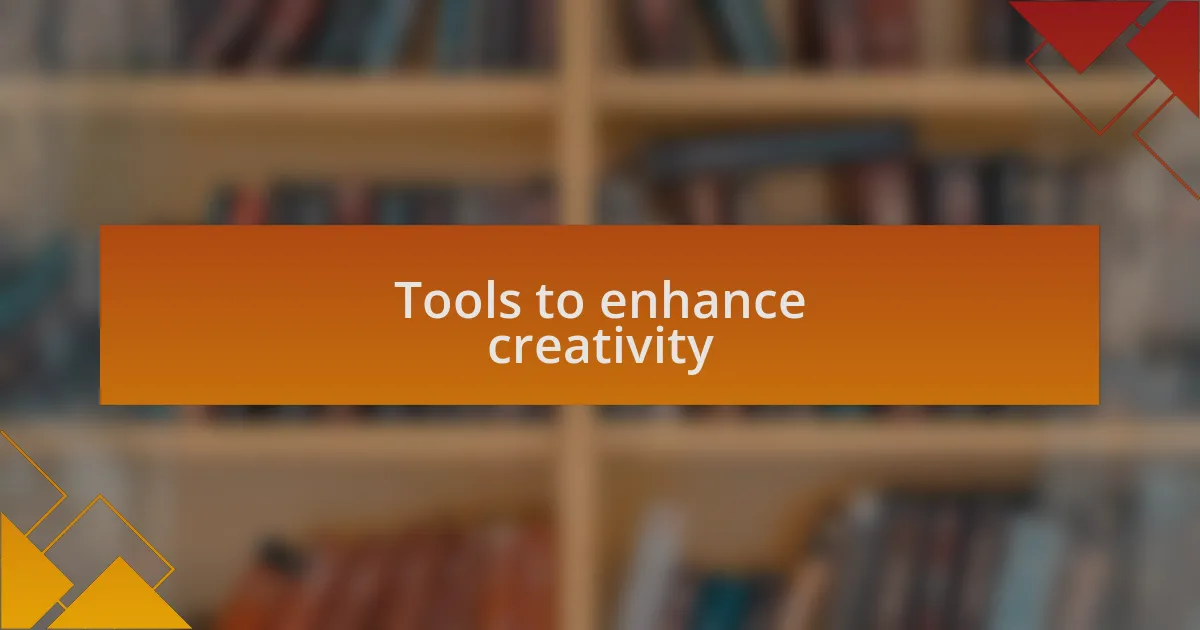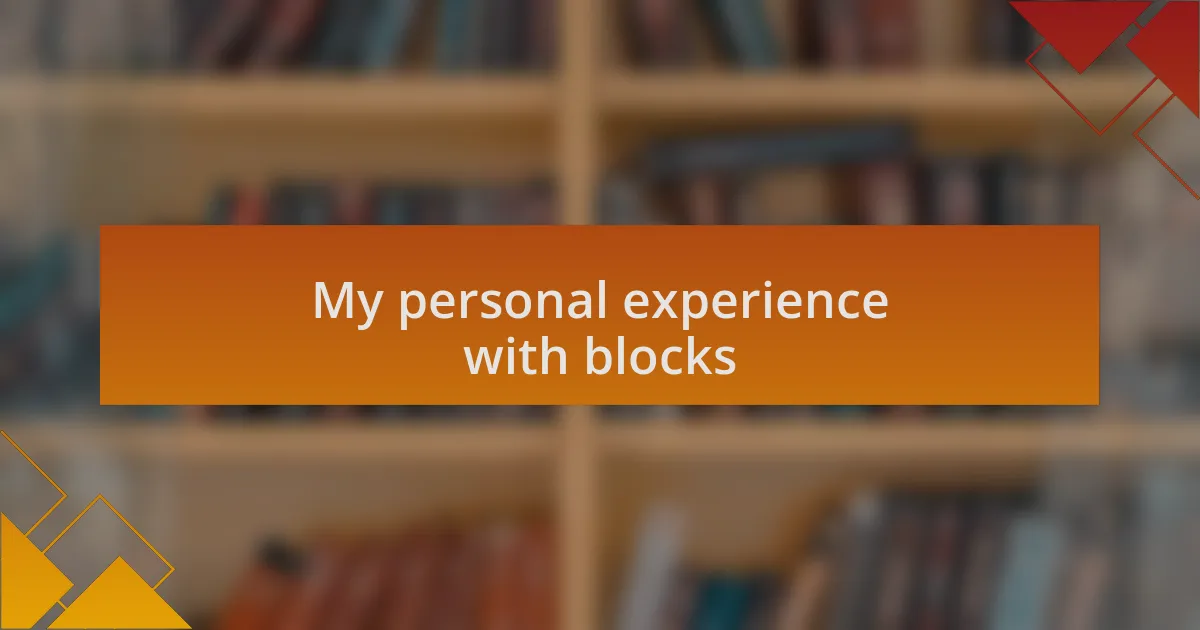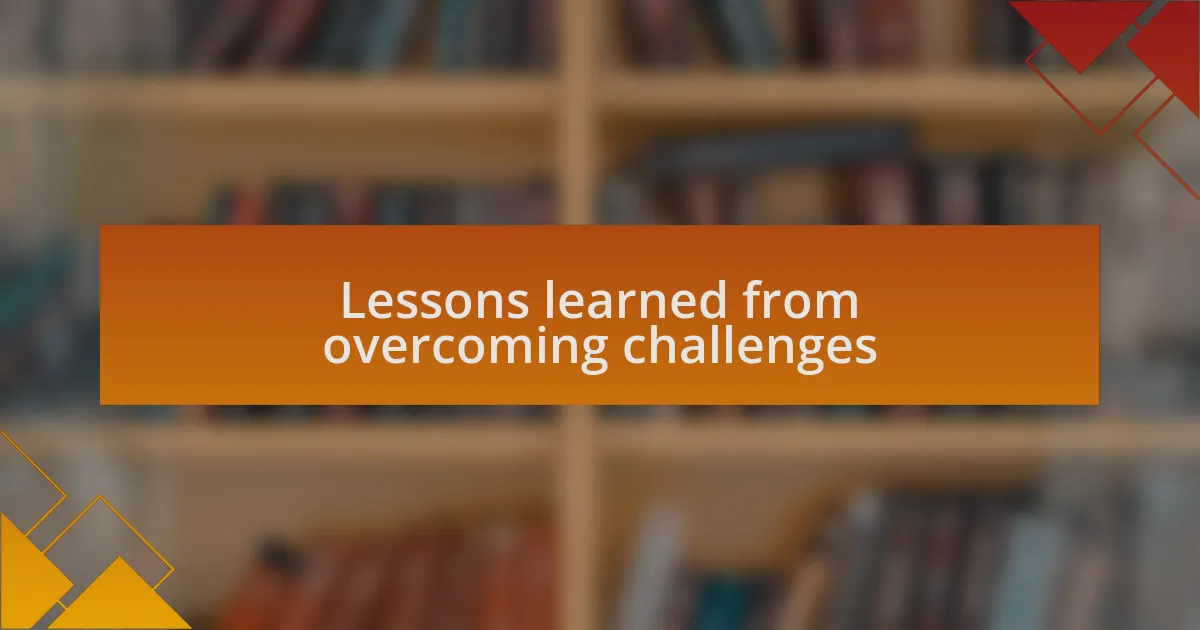Key takeaways:
- Writer’s block often stems from perfectionism, life stressors, and fear of vulnerability, affecting creativity significantly.
- Changing environments, free writing, and discussing ideas with peers are effective strategies to overcome writer’s block.
- Utilizing tools like mood boards, brainstorming software, and music can enhance creativity and facilitate the writing process.
- Embracing resilience and self-compassion is essential, as is allowing time for ideas to develop without pressure.
Understanding writer’s block
Writer’s block can feel like an insurmountable wall, keeping you from expressing thoughts swirling in your mind. I remember sitting at my desk for hours, staring blankly at a page, feeling a mix of frustration and self-doubt. It’s as if your creativity has suddenly vanished, leaving you questioning your ability to write at all.
What truly strikes me about writer’s block is its unpredictability. One moment, I’m brimming with ideas, and the next, I feel entirely drained. Have you ever felt that sudden shift? It’s unsettling, as though the words I usually find so readily have gone into hiding, leaving me grappling with a sense of inadequacy.
Perhaps it’s worth reflecting on the underlying causes of this phenomenon. Often, I’ve found that fear—fear of failure, judgment, or even success—holds us captive in a creative standstill. When I confront these fears head-on, I can almost feel the weight lifting, allowing creativity to seep back into my writing process.
Causes of writer’s block
I believe one of the most common causes of writer’s block is perfectionism. I often find myself caught in the trap of wanting everything to be just right before I even begin. This desire can create an overwhelming pressure that stifles creativity. Have you experienced the paralysis that comes with thinking, “What if this isn’t good enough?” It can lead to a complete freeze in the writing process, leaving ideas unspoken.
Another factor I’ve noticed is the impact of life stressors. When my job gets hectic or personal issues weigh on my mind, it feels challenging to focus on writing. I find that this distraction takes a toll, as the mental energy I usually reserve for creativity is diverted elsewhere. It makes me wonder if I need to create a space that separates the chaos of daily life from my writing time—how about you?
Lastly, the fear of vulnerability often plays a significant role in blocking my writing. Reflecting on my experiences, I realize that sharing personal stories makes me uneasy. It’s a blend of pride and apprehension; I want my voice to be heard but fear judgment. This internal conflict can stop me from putting pen to paper. Have you ever hesitated to reveal a piece of yourself in your writing? I think many of us grapple with this tension, and acknowledging it can be the first step towards breaking through that block.

Strategies for overcoming blocks
One effective strategy I’ve found for overcoming writer’s block is simply to change my environment. When I feel stuck, I often take my notebook to a park or a café. The fresh air and different surroundings can spark new ideas. Have you ever noticed how a change of scenery can shift your perspective? It’s remarkable how nature or the buzz of people can stimulate creativity.
I also turn to free writing as a tool to break through those mental barriers. I set a timer for ten minutes and just write whatever comes to mind without worrying about grammar or structure. This practice helps me get the flow going again. It almost feels like shaking off the cobwebs in my brain—have you ever tried it? I promise, it can surprise you with the gems that emerge from those unpolished thoughts.
Lastly, I’ve found that discussing my ideas with others can unearth inspiration. Whether it’s a writing group or a friend who shares my passion, bouncing around concepts can ignite something within me. Personally, just hearing different viewpoints often shifts my mindset and propels me forward. Have you found that dialogue fuels your creativity, too? Engaging with others can breathe new life into our projects and clear the fog of indecision that writer’s block often brings.

Tools to enhance creativity
When it comes to enhancing creativity, I’ve found that specific tools can make a remarkable difference. For example, using a mood board or a digital platform like Pinterest allows me to visually explore themes, colors, and ideas that resonate with me. Have you tried this? It’s almost like creating a visual playlist for your thoughts—I often discover unexpected connections between disparate ideas that inspire new directions in my writing.
Another powerful tool in my creative arsenal is brainstorming software like MindMeister or Trello. These programs help me organize my thoughts in an accessible way. I remember one particular project where I had dozens of jumbled ideas swirling in my mind. Mapping them out visually not only clarified my focus but also revealed hidden patterns and relationships I hadn’t considered. Isn’t it fascinating how structuring our thoughts can lead to more cohesive writing?
Additionally, I’ve turned to music as a creative enhancer, often crafting playlists tailored to the mood I want to evoke in my writing. There’s something about a powerful melody that can unlock emotions and ideas. I once wrote a whole chapter while listening to an instrumental piece that stirred a sense of longing—what about you? Do certain songs or genres ignite your creativity? Understanding how sounds and rhythm influence my emotions has proven to be invaluable in my writing process.

My personal experience with blocks
There were times when I felt completely frozen, as if the words I was desperate to write were locked away. One particular moment stands out; I was staring at my blank screen for hours, consumed by the fear of not being good enough. It’s a feeling many writers know, right? That gnawing anxiety can be paralyzing, but I learned that acknowledging it allowed me to reclaim my voice.
I vividly remember a time when I decided to step back from drafting and simply go for a walk outside. The simple act of moving my body changed everything. As I strolled through my neighborhood, my mind began to wander, and I found inspiration in the smallest details—a child playing, the rustle of leaves. Those seemingly mundane moments made me realize that creativity often springs from the world around us, not just from sitting at a desk.
Another instance that taught me how to navigate through writer’s block involved journaling. I began writing freely, without pressure to produce anything polished. Through that process, I uncovered my true thoughts and emotions, stripping away the self-doubt that had held me back. It was liberating—like shedding an old skin! Isn’t it interesting how just a few pages can serve as a lifeline back to your creativity?

Lessons learned from overcoming challenges
Overcoming challenges has taught me the invaluable lesson of resilience. I remember a particularly tough week where every word felt like pulling teeth. I had to remind myself that persistence is key. Each time I sat down, I told myself that even a bad draft was better than a blank page. This mindset shift opened the floodgates of creativity. Have you ever noticed how sometimes the act of writing, even if it’s not perfect, can lead to unexpected breakthroughs?
Another significant lesson I’ve learned is the importance of self-compassion. There were moments when I became my harshest critic, berating myself for not producing enough or for falling behind my own expectations. After recognizing this pattern, I made a conscious effort to treat myself with kindness instead. I started journaling about my feelings and acknowledging my struggles, transforming my inner dialogue into one that encouraged rather than punished. Isn’t it curious how a bit of kindness towards ourselves can often be the catalyst for progress?
Additionally, every challenge I faced uncovered a deeper understanding of my creative process. I discovered that pacing myself rather than pushing to meet arbitrary deadlines often yielded better results. By allowing space for ideas to marinate, I found clearer insights and more nuanced perspectives in my writing. It’s fascinating how challenges can prompt us to refine our approach, leading to growth that we might not have achieved otherwise. How have your own struggles shaped your creative journey?